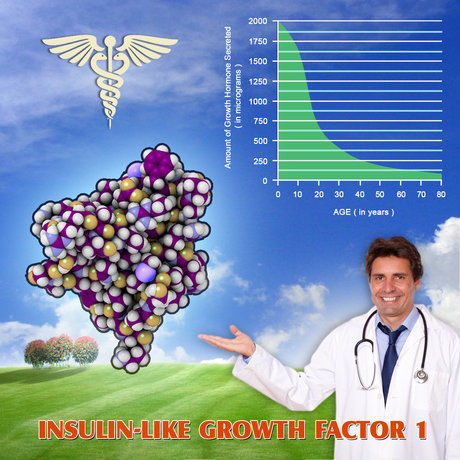Introduction
Testosterone propionate, a synthetic variant of the naturally occurring hormone testosterone, has been a subject of interest within the realm of endocrinology, particularly concerning its effects on the hormonal balance and overall endocrine system health in American males. As a short-acting ester of testosterone, it is commonly used for medical purposes, such as treating hypogonadism, and in some cases, for performance enhancement. This article delves into the relationship between testosterone propionate and the endocrine system, exploring its potential benefits and risks, and the implications for endocrine disorders.
The Role of Testosterone Propionate in the Endocrine System
Testosterone propionate is administered to supplement or replace the body's natural testosterone production. It functions by mimicking the effects of endogenous testosterone, thereby influencing various physiological processes, including muscle growth, bone density, and sexual function. Upon administration, testosterone propionate is rapidly absorbed into the bloodstream, where it exerts its effects on target tissues and organs.
The endocrine system, which comprises glands that secrete hormones directly into the circulatory system, is intricately involved in maintaining homeostasis and regulating numerous bodily functions. Testosterone propionate's interaction with this system can have profound effects on hormonal balance. It may stimulate the production of other hormones, such as erythropoietin, which increases red blood cell production, and can also influence insulin-like growth factor 1 (IGF-1), contributing to muscle and bone health.
Potential Benefits of Testosterone Propionate on Endocrine Health
For American males suffering from hypogonadism, testosterone propionate can be a valuable therapeutic agent. By restoring testosterone levels to a normal range, it can alleviate symptoms such as fatigue, reduced libido, and muscle loss. Furthermore, it may improve mood and cognitive function, which are often impaired in individuals with low testosterone levels.
In the context of aging, where testosterone levels naturally decline, testosterone propionate may offer benefits in maintaining vitality and preventing age-related declines in muscle mass and bone density. This can be particularly important for older American males who are at a higher risk of developing osteoporosis and sarcopenia.
Risks and Side Effects on the Endocrine System
Despite its potential benefits, the use of testosterone propionate is not without risks. One of the primary concerns is the suppression of the body's natural testosterone production. Prolonged use can lead to a state of hypogonadotropic hypogonadism, where the body's feedback mechanisms are disrupted, resulting in decreased production of luteinizing hormone (LH) and follicle-stimulating hormone (FSH) from the pituitary gland.
Additionally, testosterone propionate can increase the risk of developing certain endocrine disorders. For instance, it may contribute to the development of insulin resistance, a precursor to type 2 diabetes. It can also lead to an imbalance in the estrogen-testosterone ratio, as testosterone can be aromatized into estrogen, potentially leading to gynecomastia or other estrogen-related side effects.
Implications for Endocrine Disorders
The use of testosterone propionate must be carefully managed to mitigate the risk of exacerbating or developing endocrine disorders. American males with pre-existing conditions, such as thyroid disorders or diabetes, should be closely monitored by healthcare professionals. Regular blood tests to monitor hormone levels, as well as assessments of liver and kidney function, are essential to ensure the safe use of testosterone propionate.
In cases where testosterone propionate is used for non-medical purposes, such as bodybuilding, the risks are amplified. The lack of medical supervision can lead to severe endocrine disruptions and long-term health consequences, including infertility and cardiovascular disease.
Conclusion
Testosterone propionate plays a significant role in the management of certain endocrine conditions in American males, offering potential benefits in restoring hormonal balance and improving quality of life. However, its use must be approached with caution due to the risks of endocrine disruption and the development of related disorders. By understanding the complex interplay between testosterone propionate and the endocrine system, healthcare providers can better tailor treatments to the needs of their patients, ensuring both efficacy and safety.
Contact Us For A Fast And Professional Response

- Testosterone Propionate: Enhancing American Men's Health and Hormonal Balance [Last Updated On: March 6th, 2025] [Originally Added On: March 6th, 2025]
- Testosterone Propionate: A Supplement for Weight Management in American Men [Last Updated On: March 15th, 2025] [Originally Added On: March 15th, 2025]
- Testosterone Propionate: A Promising Treatment for Depression in American Males [Last Updated On: March 17th, 2025] [Originally Added On: March 17th, 2025]
- Testosterone Propionate's Impact on Cognitive Function in American Males: Benefits and Risks [Last Updated On: March 18th, 2025] [Originally Added On: March 18th, 2025]
- Long-term Testosterone Propionate Use: Health Risks for American Men [Last Updated On: March 19th, 2025] [Originally Added On: March 19th, 2025]
- Ethical Use of Testosterone Propionate in American Male Sports: Guidelines and Considerations [Last Updated On: March 20th, 2025] [Originally Added On: March 20th, 2025]
- Testosterone Propionate: Enhancing Energy in American Men - Benefits and Risks [Last Updated On: March 20th, 2025] [Originally Added On: March 20th, 2025]
- Testosterone Propionate's Role in Male Pattern Baldness Among American Men [Last Updated On: March 20th, 2025] [Originally Added On: March 20th, 2025]
- Testosterone Propionate: Enhancing Sleep Quality in American Males [Last Updated On: March 20th, 2025] [Originally Added On: March 20th, 2025]
- Testosterone Propionate's Impact on Immune Function in American Males: A Comprehensive Review [Last Updated On: March 21st, 2025] [Originally Added On: March 21st, 2025]
- Testosterone Propionate: Enhancing Muscle, Bone Health, and Well-being in American Men [Last Updated On: March 21st, 2025] [Originally Added On: March 21st, 2025]
- Testosterone Propionate: A Promising Adjunct for Chronic Pain Management in Males [Last Updated On: March 21st, 2025] [Originally Added On: March 21st, 2025]
- Testosterone Propionate: Enhancing Male Fertility in American Men [Last Updated On: March 21st, 2025] [Originally Added On: March 21st, 2025]
- Testosterone Propionate: A Promising Treatment for Osteoporosis in American Men [Last Updated On: March 22nd, 2025] [Originally Added On: March 22nd, 2025]
- Testosterone Propionate: Managing Stress in American Males Through Hormonal Therapy [Last Updated On: March 22nd, 2025] [Originally Added On: March 22nd, 2025]
- Testosterone Propionate: A Promising Treatment for Obesity in American Males [Last Updated On: March 23rd, 2025] [Originally Added On: March 23rd, 2025]
- Testosterone Propionate's Impact on Liver Health in American Men: A Comprehensive Review [Last Updated On: March 23rd, 2025] [Originally Added On: March 23rd, 2025]
- Testosterone Propionate: Enhancing Fertility in American Males with Low Sperm Count [Last Updated On: March 23rd, 2025] [Originally Added On: March 23rd, 2025]
- Testosterone Propionate: Enhancing Vitality in American Men's Anti-Aging Regimens [Last Updated On: March 24th, 2025] [Originally Added On: March 24th, 2025]
- Testosterone Propionate's Impact on Mood Swings in American Men: Benefits and Challenges [Last Updated On: March 24th, 2025] [Originally Added On: March 24th, 2025]
- Testosterone Propionate: Enhancing Male Aesthetics and Well-being in the U.S. [Last Updated On: March 25th, 2025] [Originally Added On: March 25th, 2025]
- Testosterone Propionate: Benefits, Dosage, and Risks for American Male Bodybuilders [Last Updated On: March 25th, 2025] [Originally Added On: March 25th, 2025]
- Testosterone Propionate's Impact on Blood Pressure in American Men: A Comprehensive Review [Last Updated On: March 25th, 2025] [Originally Added On: March 25th, 2025]
- Testosterone Propionate: A Promising Treatment for Anemia in American Men [Last Updated On: March 25th, 2025] [Originally Added On: March 25th, 2025]
- Testosterone Propionate Use and Diabetes Risk in American Men: A Comprehensive Analysis [Last Updated On: March 25th, 2025] [Originally Added On: March 25th, 2025]
- Testosterone Propionate's Impact on Cardiovascular Health in American Men [Last Updated On: March 25th, 2025] [Originally Added On: March 25th, 2025]
- Testosterone Propionate: Enhancing Sexual Health in American Men [Last Updated On: March 25th, 2025] [Originally Added On: March 25th, 2025]
- Testosterone Propionate: Enhancing Vitality and Health in American Men [Last Updated On: March 25th, 2025] [Originally Added On: March 25th, 2025]
- Testosterone Propionate: Enhancing Recovery in American Male Athletes [Last Updated On: March 26th, 2025] [Originally Added On: March 26th, 2025]
- Testosterone Propionate: Enhancing Endurance and Performance in American Men [Last Updated On: March 26th, 2025] [Originally Added On: March 26th, 2025]
- Testosterone Propionate: Impacts on Mental Health in American Men [Last Updated On: March 26th, 2025] [Originally Added On: March 26th, 2025]
- Testosterone Propionate: Boosting Energy in American Males with Low Testosterone [Last Updated On: March 26th, 2025] [Originally Added On: March 26th, 2025]
- Testosterone Propionate: Enhancing Sexual Health in American Men Under Medical Supervision [Last Updated On: March 26th, 2025] [Originally Added On: March 26th, 2025]
- Testosterone Propionate: Managing Hormonal Imbalances in American Men [Last Updated On: March 26th, 2025] [Originally Added On: March 26th, 2025]
- Testosterone Propionate: Enhancing Libido and Sexual Performance in American Men [Last Updated On: March 26th, 2025] [Originally Added On: March 26th, 2025]
- Testosterone Propionate: Enhancing Strength and Risks for American Men [Last Updated On: March 26th, 2025] [Originally Added On: March 26th, 2025]
- Testosterone Propionate: A Promising Treatment for Chronic Fatigue in American Males [Last Updated On: March 26th, 2025] [Originally Added On: March 26th, 2025]
- Testosterone Propionate's Impact on Cholesterol Profiles in American Men: Cardiovascular Risks [Last Updated On: March 26th, 2025] [Originally Added On: March 26th, 2025]
- Testosterone Propionate: Enhancing Joint Health in American Men [Last Updated On: March 27th, 2025] [Originally Added On: March 27th, 2025]
- Testosterone Propionate: Short-Acting HRT for American Males - Benefits and Management [Last Updated On: March 27th, 2025] [Originally Added On: March 27th, 2025]
- Testosterone Propionate: Uses, Benefits, and Risks in Men's Health Therapy [Last Updated On: March 27th, 2025] [Originally Added On: March 27th, 2025]
- Testosterone Propionate: Benefits, Risks, and Legalities for American Men's Health and Fitness [Last Updated On: March 27th, 2025] [Originally Added On: March 27th, 2025]
- Testosterone Propionate's Impact on Immune System in American Men: Benefits and Risks [Last Updated On: March 27th, 2025] [Originally Added On: March 27th, 2025]
- Testosterone Propionate: A Treatment for Muscle Wasting in American Males [Last Updated On: March 27th, 2025] [Originally Added On: March 27th, 2025]
- Testosterone Propionate: Enhancing Muscle Recovery in American Men [Last Updated On: March 28th, 2025] [Originally Added On: March 28th, 2025]
- Testosterone Propionate: Benefits, Risks, and Legal Issues for American Weightlifters [Last Updated On: March 28th, 2025] [Originally Added On: March 28th, 2025]
- Testosterone Propionate: Benefits, Risks, and Legal Issues for American Men [Last Updated On: March 28th, 2025] [Originally Added On: March 28th, 2025]
- Testosterone Propionate's Impact on Bone Health in American Men: Benefits and Risks [Last Updated On: March 28th, 2025] [Originally Added On: March 28th, 2025]
- Testosterone Propionate: Enhancing Mood and Cognition in American Men [Last Updated On: March 28th, 2025] [Originally Added On: March 28th, 2025]
- Testosterone Propionate: Enhancing Sexual Health in American Men - Benefits and Risks [Last Updated On: March 30th, 2025] [Originally Added On: March 30th, 2025]
- Testosterone Propionate's Cardiovascular Impact on American Men: Benefits, Risks, and Management [Last Updated On: March 31st, 2025] [Originally Added On: March 31st, 2025]
- Testosterone Propionate: Benefits, Risks, and Legal Use in American Bodybuilding [Last Updated On: March 31st, 2025] [Originally Added On: March 31st, 2025]
- Testosterone Propionate: Benefits, Risks, and Medical Supervision for American Men [Last Updated On: March 31st, 2025] [Originally Added On: March 31st, 2025]
- Testosterone Propionate: Impacts on Mood and Emotional Health in American Men [Last Updated On: April 1st, 2025] [Originally Added On: April 1st, 2025]
- Testosterone Propionate: Enhancing Bone Density in American Men [Last Updated On: April 5th, 2025] [Originally Added On: April 5th, 2025]
- Testosterone Propionate: Benefits, Risks, and Legal Issues for American Male Athletes [Last Updated On: April 5th, 2025] [Originally Added On: April 5th, 2025]
- Testosterone Propionate: Enhancing Sexual Desire and Function in American Men [Last Updated On: April 6th, 2025] [Originally Added On: April 6th, 2025]
- Testosterone Propionate: A Promising Treatment for Fatigue in American Males [Last Updated On: April 8th, 2025] [Originally Added On: April 8th, 2025]
- Testosterone Propionate: Treating Muscle Loss in American Males [Last Updated On: April 8th, 2025] [Originally Added On: April 8th, 2025]
- Testosterone Propionate: Enhancing Men's Health and Fitness in the U.S. [Last Updated On: April 9th, 2025] [Originally Added On: April 9th, 2025]
- Testosterone Propionate: Enhancing Muscular Strength in American Men - Benefits and Risks [Last Updated On: April 10th, 2025] [Originally Added On: April 10th, 2025]
- Testosterone Propionate: Managing Endocrine Health in American Men [Last Updated On: April 10th, 2025] [Originally Added On: April 10th, 2025]
- Testosterone Propionate: Enhancing Sports Performance and Associated Health Risks in American Men [Last Updated On: April 11th, 2025] [Originally Added On: April 11th, 2025]
- Testosterone Propionate: Benefits, Risks, and Impact on American Men's Reproductive Health [Last Updated On: April 12th, 2025] [Originally Added On: April 12th, 2025]
- Testosterone Propionate: Psychological Impacts and Risks for American Men [Last Updated On: April 12th, 2025] [Originally Added On: April 12th, 2025]
- Testosterone Propionate: Benefits, Risks, and HRT for American Men [Last Updated On: April 12th, 2025] [Originally Added On: April 12th, 2025]
- Testosterone Propionate: Enhancing Strength Training in American Men - Benefits and Risks [Last Updated On: April 12th, 2025] [Originally Added On: April 12th, 2025]
- Testosterone Propionate Use and Cardiovascular Risks in American Men: A Comprehensive Overview [Last Updated On: April 13th, 2025] [Originally Added On: April 13th, 2025]
- Testosterone Propionate: Enhancing Performance and Risks for American Men [Last Updated On: April 16th, 2025] [Originally Added On: April 16th, 2025]
- Testosterone Propionate: Cardiovascular Benefits and Risks in American Men [Last Updated On: April 16th, 2025] [Originally Added On: April 16th, 2025]
- Testosterone Propionate: Combating Lethargy in American Males Effectively [Last Updated On: April 17th, 2025] [Originally Added On: April 17th, 2025]
- Testosterone Propionate: Psychological Impacts and Risks for American Men [Last Updated On: April 17th, 2025] [Originally Added On: April 17th, 2025]
- Testosterone Propionate: A Promising Treatment for Sarcopenia in Aging American Males [Last Updated On: April 17th, 2025] [Originally Added On: April 17th, 2025]
- Testosterone Propionate: Benefits and Risks for Bone and Joint Health in American Men [Last Updated On: April 17th, 2025] [Originally Added On: April 17th, 2025]
- Testosterone Propionate: Enhancing Sexual Vitality in American Men - Benefits and Risks [Last Updated On: April 18th, 2025] [Originally Added On: April 18th, 2025]
- Testosterone Propionate: Enhancing Mood and Well-being in American Men [Last Updated On: April 18th, 2025] [Originally Added On: April 18th, 2025]
- Testosterone Propionate in Men's Wellness: Benefits, Risks, and Holistic Integration [Last Updated On: April 19th, 2025] [Originally Added On: April 19th, 2025]
- Testosterone Propionate: Enhancing Hormonal Health in American Men [Last Updated On: April 20th, 2025] [Originally Added On: April 20th, 2025]
- Testosterone Propionate: Benefits, Risks, and Impact on American Men's Health [Last Updated On: April 20th, 2025] [Originally Added On: April 20th, 2025]
- Testosterone Propionate: Managing Hormonal Disorders in American Men [Last Updated On: April 21st, 2025] [Originally Added On: April 21st, 2025]
















